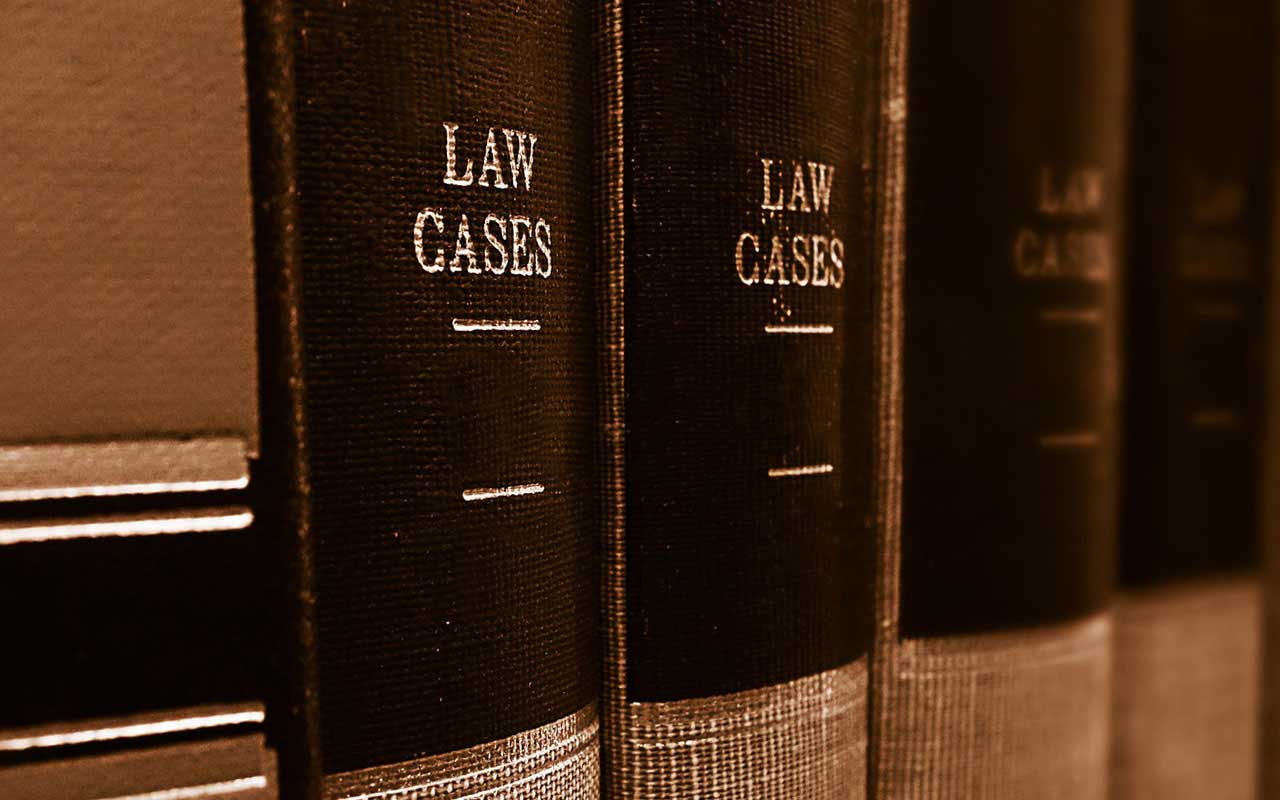
Legal Writing & Style
Nov 1, 2018

“Lawyers possess only one tool to convey their thoughts: language . . . They must love words and use them exactly.” So says Antonin Scalia in his 2008 book about persuasive legal strategies, Making Your Case. Regardless of their philosophies on constitutional interpretation, the justices on the Supreme Court would all agree with their late colleague on this: To become a persuasive lawyer, one must “read lots of good prose” and “write, and write often.”
“Behind the assignments and readings in Legal Writing & Style is this same assumption, that clear, cogent writing reflects clear, cogent thinking. ”
Dr. Louis Di Leo
The problem, which Scalia concedes in the same book, is that good prose is seldom found in legal writing. Of course, there are some examples of it. Writings by Oliver Wendell Holmes Jr., Robert H. Jackson, Elena Kagan, and Scalia, himself, exhibit the attention to and care for words often ascribed to literary writers. But outside of works by these lawyers and a few dozen others from Anglophone jurisdictions, legal English is largely dull and turgid, stuffed with clichés and pomposity. The bigger problem is that law students can too easily mistake jargon-riddled, hyperformal writing for legal acumen. And when lawyers-to-be make this mistake, they tend to double-down on bad writing habits, such as avoiding everyday words, in an attempt to demonstrate professional merit.
For some law students, bad writing serves as a way to pivot from difficult legal questions on exams. They use convoluted syntax in every analysis and rely on case-namedropping to secure passing grades. It’s a regrettable aspect of legal studies but, if used limitedly, it can work. After all, you know what they call a lawyer who barely passed the bar exam, right? A lawyer. And really bad writers can still be lawyers; in fact, many are. But their career trajectories will differ from those of lawyers for whom language offers something more. The discovery of joy in language is, as Scalia hints at, essential to persuasiveness. It’s the art of the profession. For that reason, it is the first objective for a new special-topics course at FSC, ENG 4209 Legal Writing & Style.
The course will expose students to well-written legal texts from the common-law tradition while emphasizing elements characteristic of good style—“proper words in proper places,” as Jonathan Swift defined it. After beginning with the law-school application essay, students will analyze and work in many of the genres used for law-school assignments, including case briefs, intraoffice memoranda, judicial opinions, and short law-review articles. In doing so, students will learn how to assess legal problems and come to understand legal writing as a craft, deepening their awareness of tone, clarity, and structure. It’s an approach that’s similar pedagogically to creative-writing courses. And though poets may not coerce their readers to action, they do share with good legal writers a love for language. That common bond between law and poetry is so significant, in fact, that many educators in both law and the humanities, including Duke University’s George Gopen, have written lengthy arguments about why “[t]he formalistic study of poetry is the best preparation for the study of law.”

Despite the major or minor a student declares, there will inevitably be surprises awaiting her or him at law school. Yet, the importance of writing and reading to the study of law doesn’t need to be one of them. Like poetry, law is a business of words first. From contracts and wills to complaints and answers, legal writings are a lawyer’s wares. But to be a good writer, a lawyer must adhere to a prime rule: “You have to read widely . . . If you don’t have the time to read, you don’t have the time (or the tools) to write. Simple as that.” This rule, which comes from celebrated fiction-writer Stephen King, suggests that the skills of good writing and good reading are honed by years of practice. They’re not achievable over spring break or summer vacation, or even in a semester. Another objective of this course, then, is the strengthening of critical-reading and refined-writing habits. To achieve this, the course will incorporate written texts that students regularly interact with, including some from social media, to demonstrate opportunities for evaluating persuasiveness and stylistic patterns outside the classroom.
Since it is a 4000-level course, students in Legal Writing & Style will be expected to be proficient in Standard Edited English, but they will not be expected to be masters of good prose. Instead, seeing how language can be crafted and refined into a sentence that is, in the words of James Baldwin, “as clean as a bone” is the final objective of the course. But the objective is only to set it up for students to see—a foam ten-ring target ninety meters away. Hitting the bullseye will come after misses and bouncers. The benefits, though, are tangible. Bryan Garner, the author of over twenty books used in law schools, believes that “legal employers prize writing ability more highly than almost any other skill . . . [and that] if you can write—really write—people will assume certain other things about you. The most important is that you’re a clear thinker.” Behind the assignments and readings in Legal Writing & Style is this same assumption, that clear, cogent writing reflects clear, cogent thinking. And the field of law, Garner acknowledges, “could stand to have these qualities in greater abundance.”